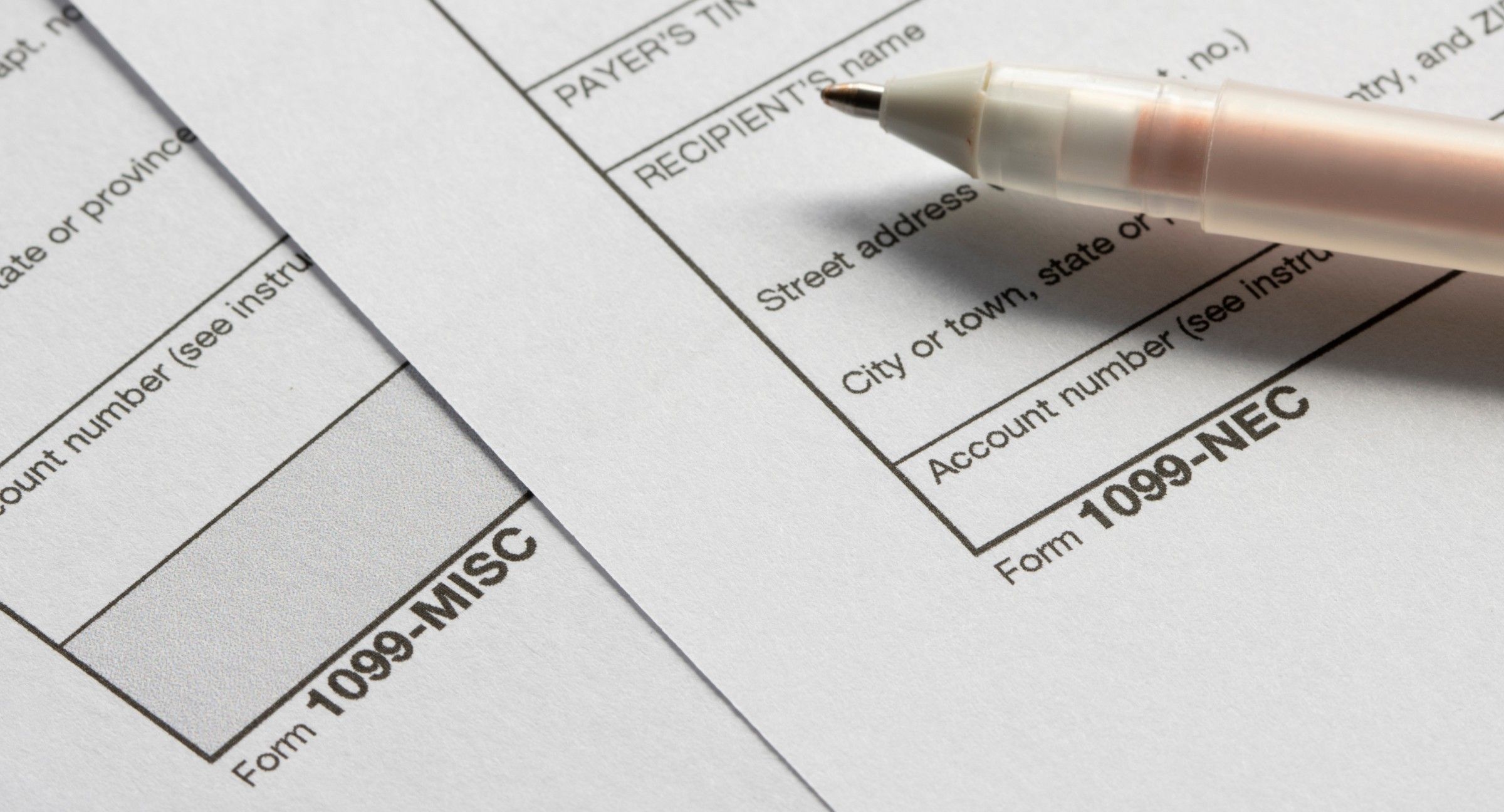Navigating 1099s: How to Avoid Common Filing Mistakes & Penalties

STG Accounting
February 22, 2024

If you own a business that typically hires independent contractors or freelancers, you’re familiar with 1099 forms (and they’re probably not your favorite thing to take care of every year). A little knowledge can help ease the stress. In this guide, we'll explore common filing mistakes, the steps you can take to avoid them, and strategies to ensure you remain in compliance.
The Most Common Mistakes Business Owners Make
Annual 1099 reporting (and the work it takes all year to ensure compliance) doesn’t have to be a source of dread and anxiety. With the proper knowledge, you’ll be just fine. We’ll start with some of the common mistakes to avoid:
Misclassifying Workers
Misclassifying workers as independent contractors or freelancers can lead to underreporting income and a failure to withhold taxes. That can raise a red flag with the IRS. Understanding the criteria for distinguishing between employees and independent contractors is essential. If unsure, consult a legal or tax professional for guidance.
Filling Out the Wrong Form
Form 1099 comes in various forms, depending on what you’re reporting. Make sure you’re using the correct one - here’s a guide:
- 1099-MISC: Various types of miscellaneous income, such as payments for services performed by non-employees, rents, royalties, prizes and awards, and other income
- 1099-INT: Interest income paid to individuals, including interest earned on bank accounts, savings bonds, and other investments
- 1099-DIV: Report dividends and other distributions from investments, such as stocks and mutual funds
- 1099-B: Proceeds from the sale of stocks, bonds, commodities, and other securities, as well as barter exchange transactions
- 1099-R: Distributions from pensions, annuities, retirement plans, individual retirement accounts (IRAs), and other retirement arrangements
- 1099-K: Payment cards and third-party network transactions, such as credit card and debit card payments, processed by payment settlement entities
- 1099-NEC: Payments of $600 or more made to non-employees, such as independent contractors, freelancers, and other self-employed individuals, for services performed in the course of a trade or business
Reporting the Wrong Taxpayer ID Number (TIN) Or Missing It Altogether
Make sure the taxpayer ID you received from your vendor matches what the IRS has by running it through their TIN verification tool.
Regularly updating the Form W-9 for your vendors throughout the year is also a good idea to avoid problems come tax season.
Not Double Checking the Accuracy of Your Information
Do you have the correct year and vendor? Is their name and address correct? Double-check your records to ensure you’re reporting accurate information.
Not Formatting the Form Correctly
Machines are used to read the forms, and if you put a name or address in the wrong format, it runs the risk of not being processed correctly. Check that you’re inputting information in the correct format.
Not Paying Attention to Important Dates
Businesses are typically required to provide 1099 forms to recipients by January 31. If you’re filing paper copies, you have until the end of February. If you’re filing electronically, the deadline is extended to the end of March.
Of significant note for this year, as of January 1, 2024, the IRS threshold for requiring that you file electronically is 10 returns. Previously, it was 250.
Strategies for Ensuring Compliance
Put the following strategies in place for your 1099 accounting, and you’ll have peace of mind come tax season:
- Maintain detailed records of all payments made to parties that require 1099 reporting.
- Conduct regular audits of your records to ensure accuracy and catch discrepancies.
- Educate your team on the IRS guidelines and requirements for 1099 reporting.
- Consult with tax professionals or legal experts if you need help, especially if you’re struggling with complex reporting issues.
If you’re a business owner who needs help with 1099s, leave it to the experts at STG Accounting. We can help with:
- Year-end 1099 reports for all contract workers
- Preparing and e-filing reports
- State-specific 1099 laws
- Compliance reviews
Book a meeting today to get started!

Bookkeeping
8 Common Bookkeeping Mistakes by Small Businesses

Taxes
10 Tax Season Preparation Tips for Small Businesses

Accounting
Year-End Small Business Accounting Checklist